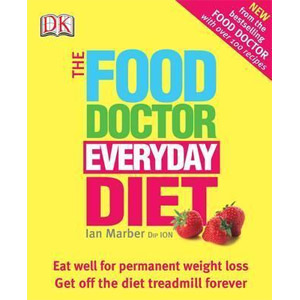Happy with your diet?
Top nutritionist tips to help you eat healthy, feel better
 Happy with your diet? Who is these days! I’m regularly bewildered by what I should/should not be eating – not to mention what my stomach is telling me. Through trial and error I’ve found out that I’m generally happier with less wheat and less dairy, but what are the healthiest alternatives? I’d been crunching through ‘seemed-like-it-should-be-healthy’ breakfast muesli for months before someone pointed out it was packed full of sugar. Just think, all that time I could have been eating chocolate instead ...
Happy with your diet? Who is these days! I’m regularly bewildered by what I should/should not be eating – not to mention what my stomach is telling me. Through trial and error I’ve found out that I’m generally happier with less wheat and less dairy, but what are the healthiest alternatives? I’d been crunching through ‘seemed-like-it-should-be-healthy’ breakfast muesli for months before someone pointed out it was packed full of sugar. Just think, all that time I could have been eating chocolate instead ...
Anyway, determined to get to the bottom of it, I saw a nutritionist recently at London’s Food Doctor clinic. Here’s what she advised:
1. Never skip breakfast – you need to eat soon after getting up in order to start normal blood metabolism for the day and switch off the stress hormones that get you out of bed
2. Ask yourself every time you eat 'where is the protein?' You need to supply your body with fuel to make it burn and work effectively, carbohydrates on their own are effectively just paper on the fire, proteins are long-burning logs
3. Use your palms as guides. The ratio should be one portion of protein to every two portions of carbohydrate
4. Remember that animal protein is acid-forming and inflammatory. Try to keep your internal environment alkaline by eating lots of vegetables and fruit which metabolise to alkaline end products
5. Deep diaphragmatic breathing is one of the body's mechanisms for buffering acidity. Do it for a few minutes every day
Here are some meal-time choices for anyone keen to cut down on wheat and dairy
For breakfast try porridge made with water or a nut or soya milk. Add a tablespoon of sprouted powdered linseed (Linusprout) for added protein value and omega 3 precursors.
Soup is a good lunch option, as is salad: use a wide range of colourful leaves and vegetables and add protein in the form of tuna or salmon or chicken. If you have pasta or rice choose a topping that includes some good quality protein. Or as an alternative, try a baked potato with a protein filling.
For supper, fish or chicken is best – if you eat red meat restrict it to small portions, no more than 2 to 3 times per week – served with boiled vegetables and no starchy carbohydrates. Alternatively have an omelette or a stir fry with prawns and glass noodles.
Snack on fruit – dried or fresh – but always add nuts and and/or seeds for protein. Hummus on an oat or rice cake or other crisp bread is another good option.
For more information and to book a consultation contact The Food Doctor clinic, Harley St, London, phone 020 7792 6700 or visit the website at www.thefooddoctor.com. Consultations are £95 for an initial session, £125 for follow-ups. You can buy the Food Doctor’s (Ian Marber) Ultimate Diet book here
Post your comment
About This Blog
About The Authors

Carla Griscti
Editorial assistant on allaboutyou; Music lover, travel bee and food fanatic.
Read more
Emma Marsden
Food consultant of All About You, loves creating something out of nothing and decluttering.
Read more
Bernadette Fallon
Editor of All About You; an online journalist with a fetish for glossy magazines.
Read more
Carol Muskoron
Associate editor of All About You, loves life (mostly) and one-pan recipes (always).
Read more- Most recent
- Most popular
- Avoiding a hip replacement
- The benefits of acupuncture
- The five best things I tried this week
- Mindfulness for health: a practical guide
- The five best things I tried this week
- A ‘wonder’ supplement to boost energy
- Can I avoid a hip replacement?
- Watch this video - you could save a life
- 10k Race for Life: race day looms!
- None of us can move forward if half of us are held back...



